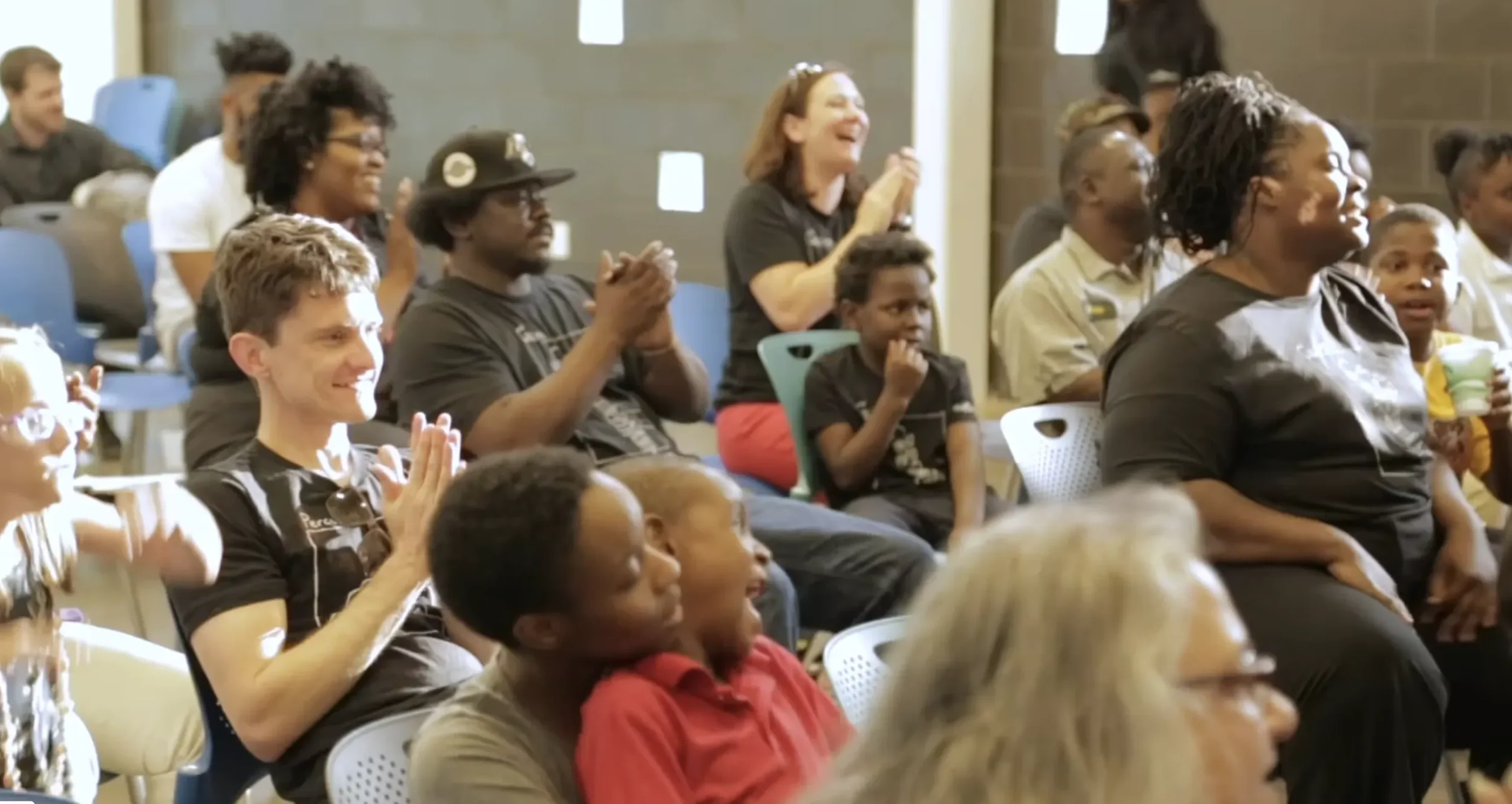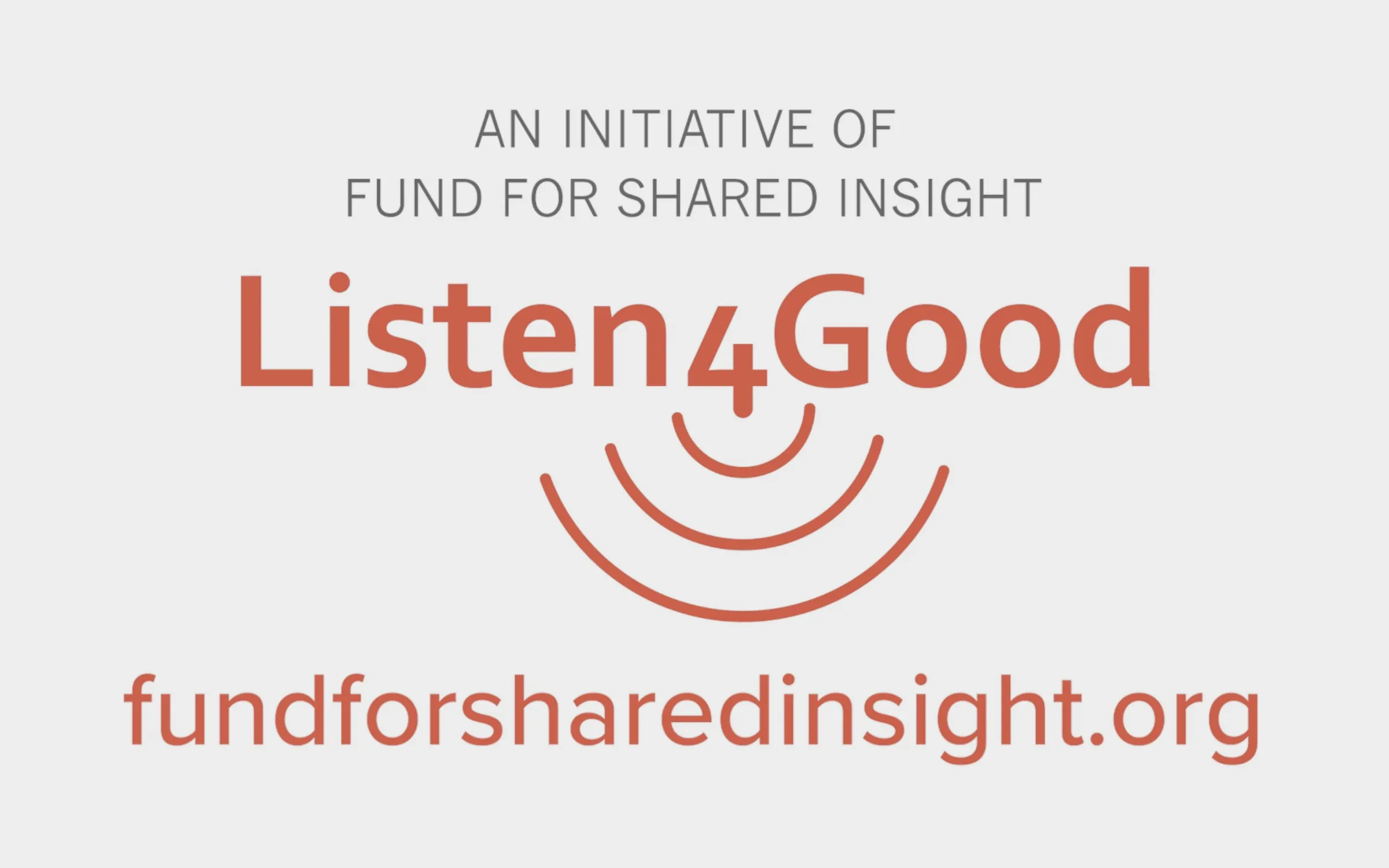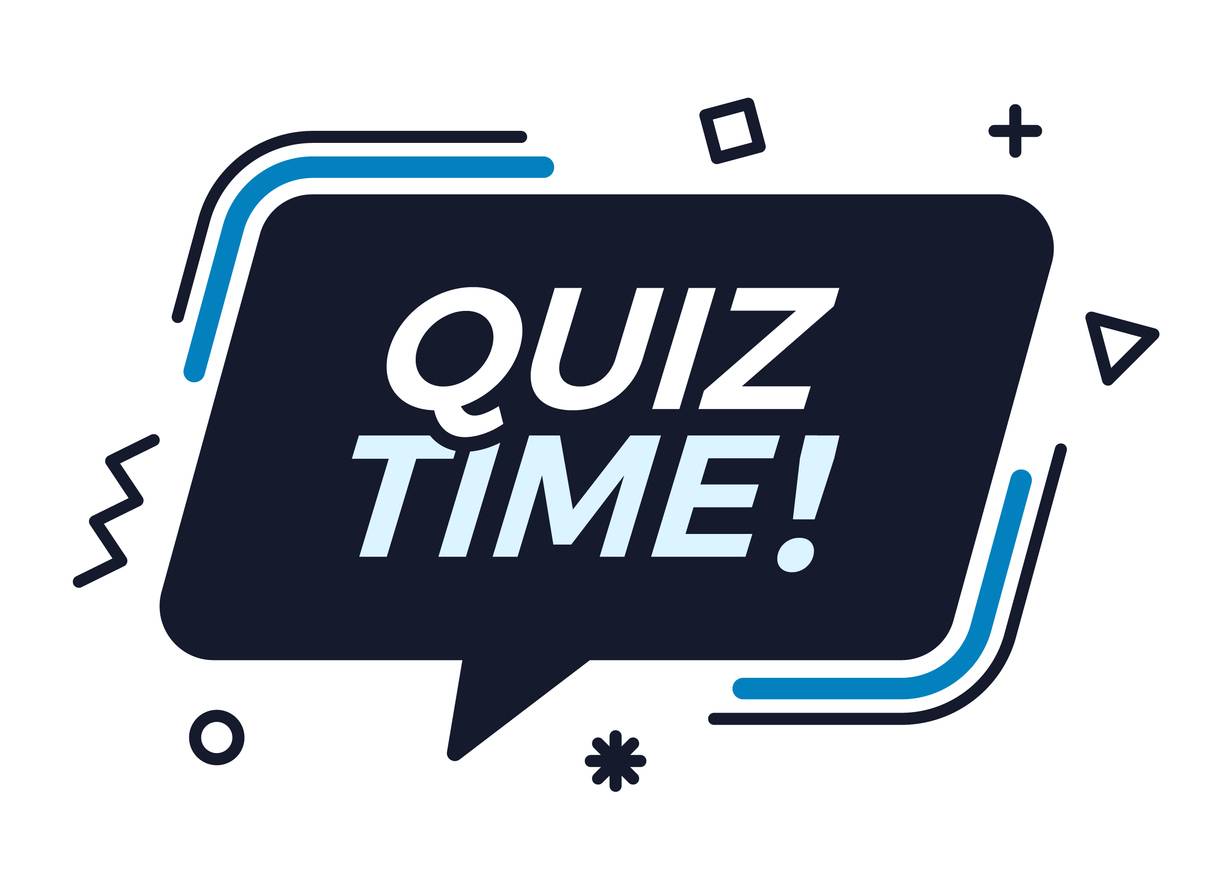The Enduring Legacy of Albert O. Hirschman

Consumer Voice
Albert O. Hirschman died at the age of 97 last December. His seminal 1970 treatise, Exit, Voice, and Loyalty: Responses to Decline in Firms, Organizations, and States, is feeling younger and more relevant every day.
Classic market theory is based on exit as the defining choice for consumers. If you grow unhappy with a company or product, you drop it. Hirschman’s core insight is that people have another choice when faced with a decline in some organization that affects them: voice. Hirschman eloquently observed that people often decide not to exit, but to ante up – to engage to improve the organization. This is perhaps particularly true in the real-world choices faced by citizens with respect to development services. But as the customer satisfaction industry has shown, companies benefit tremendously by cultivating consumer voice.
The Value of Valuing Relationships
At Keystone Accountability, we actively explore the interplay of exit and voice choices in our surveys of our clients’ constituents. We ask what we call the Voice Question: how likely are you to engage the organization in order to make it better for yourself and your family? We also ask the Responsiveness Question: how likely do you think it is that the organization will respond satisfactorily to your feedback?
The answers to these questions provide a robust measure of Constituent Voice that organizations can use to assess their vitality and effectiveness. Tracked continuously over time, these voice metrics let an organization know if the improvements it is attempting are working.
One of Hirschman’s observations about voice was that it was not always comfortable or polite. Voice involves challenge and even confrontation. But if working on relationships is not always easy, it is inherently less destructive than exiting them. For any organization that wants to sustain and improve its relationships with those it exists to serve, there is a clear value in cultivating voice.
We see this dynamic play out for many of our clients in the first months of cultivating voice among their constituents. They experience improving scores for the Voice Question and the Responsiveness Question. But at the same time, their scores go down on questions relating to service quality. We know from post-survey investigative interviews and focus groups that when people see that an organization is taking their feedback seriously, they are more considered and frank in the feedback that they provide.
The quality of feedback data is directly affected by how organizations respond to the feedback. After an initial dip in service quality scores, we expect to see an upturn as constituents recognize the improvements organizations are making in response to their feedback.
Utilizing Constituent Voice
In honor of Hirschman’s contribution to our Constituent Voice methodology, we have named our operations process the Hirschman Cycle.
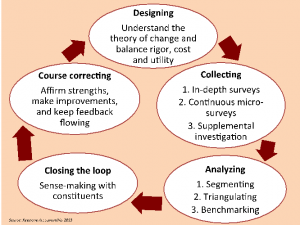
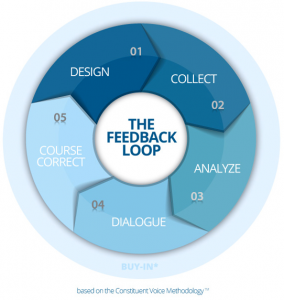
In my next blog for Feedback Labs I will acknowledge our debt to the other great democratic theorist at the heart of our work, Amartya Sen. Learn more about Constituent Voice and how to apply it in your organization at www.keystoneaccountability.org.
By David Bonbright, Co-Founder and Chief Executive, Keystone Accountability
Email: [email protected]
Twitter: @davidbonbright
